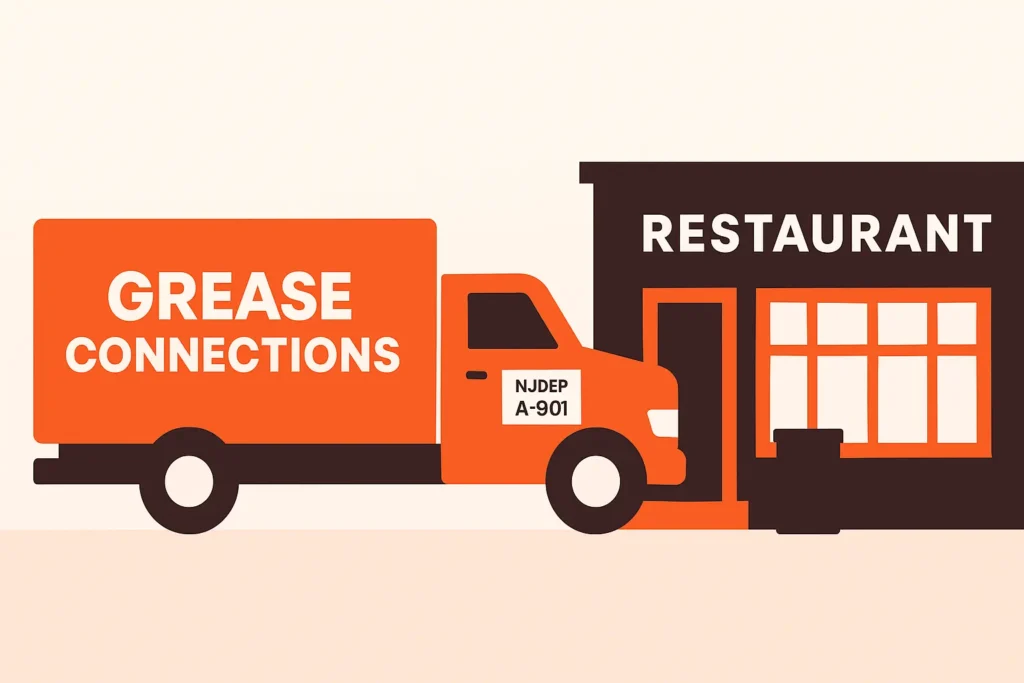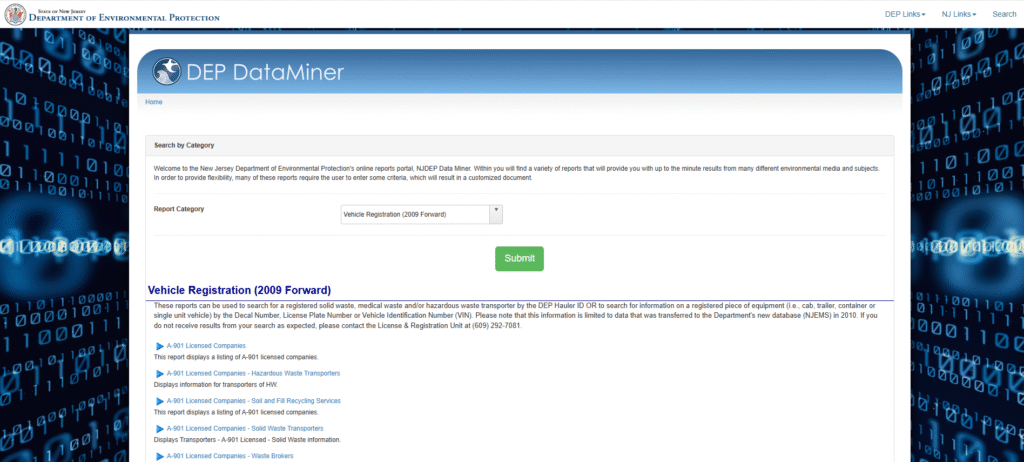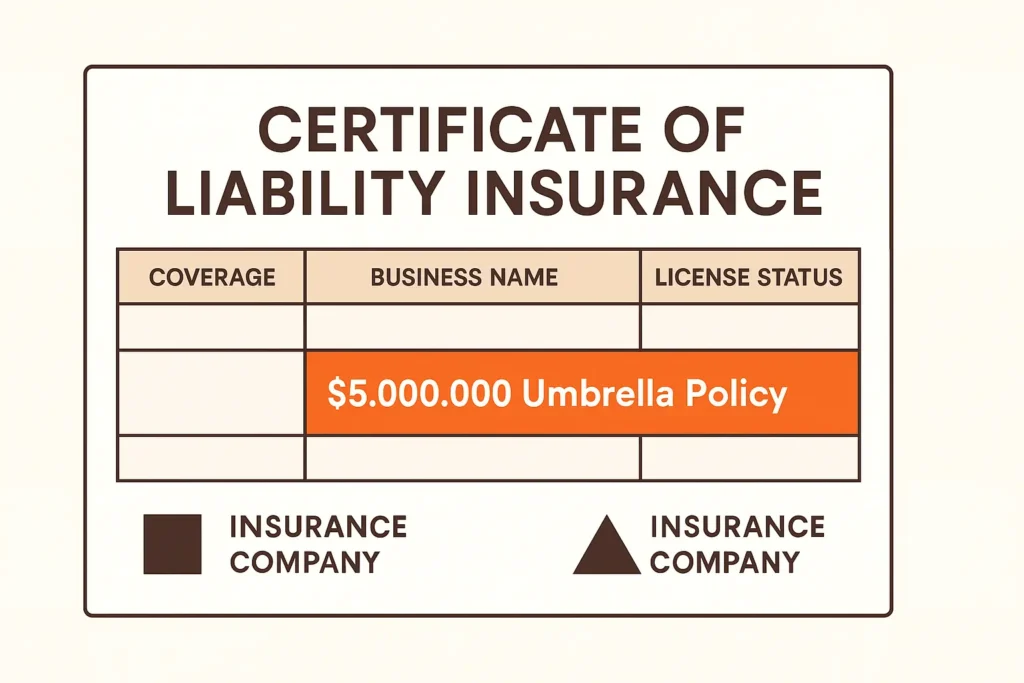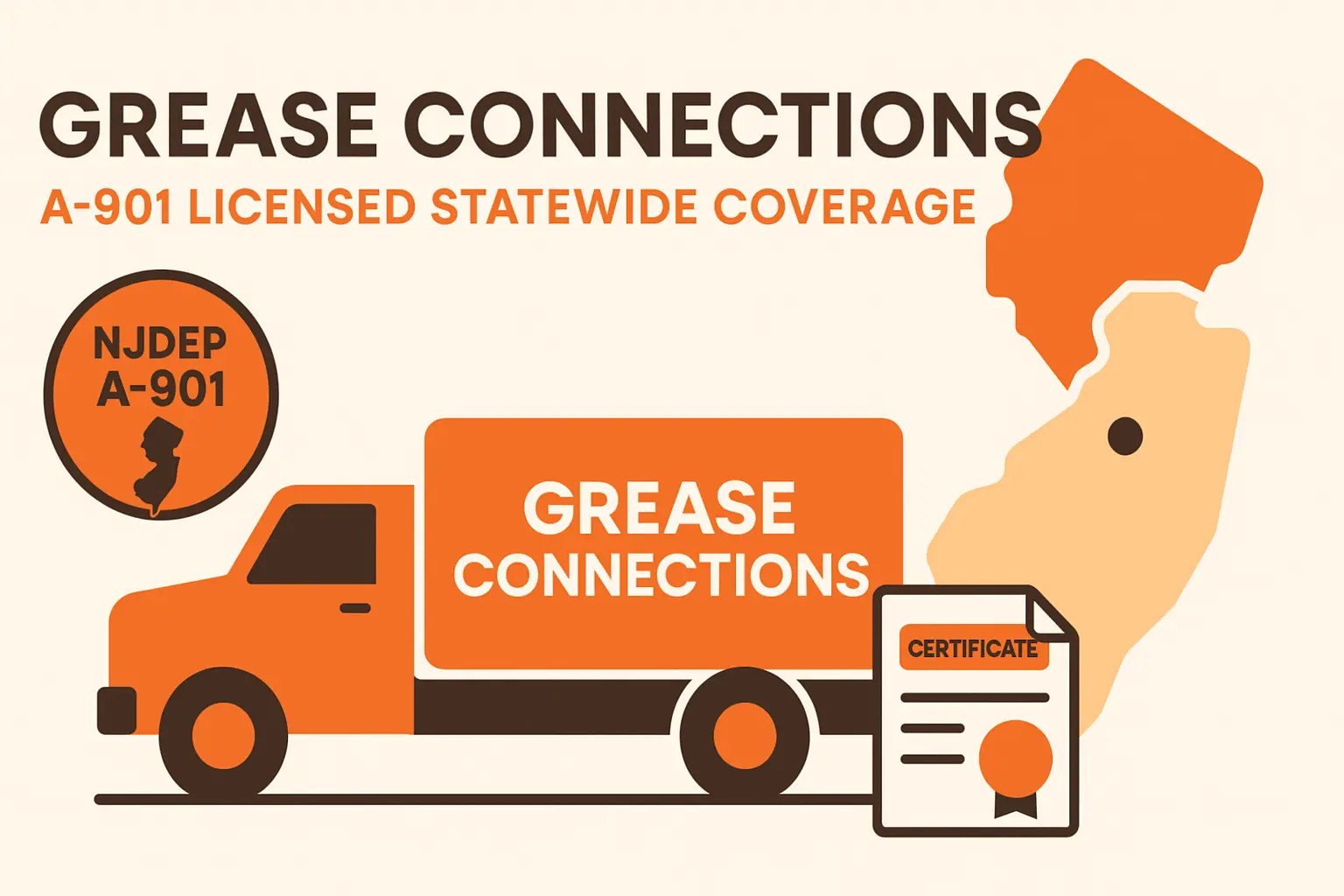Table of Contents
Why Licensing Matters in New Jersey’s Used Grease Market
Restaurants face five figure fines and forced shutdowns if their waste oil ends up in an unpermitted truck. The NJDEP’s Hazardous Waste Compliance unit openly cites transporter audits, roadside inspections, and penalty settlements as routine enforcement tools.
Every grease collection company must clear the three part A 901 licensing process: background disclosure, financial fitness, and vehicle registration before touching a gallon of oil. Under N.J.A.C. 7:26A 6.6, unlicensed transport is treated the same as hazardous waste hauling, exposing the restaurant to joint liability. Grease Connections holds an active A 901 license and publishes its number on every invoice; that single detail removes the #1 fear customers voice on first calls: “We can’t risk surprises at inspection.”

Verify a Company’s Permit in Five Minutes
Open NJDEP’s public ID Number Look up Tool, enter the transporter’s name, and confirm an “Active” status; suspended or “Pending” entities cannot legally haul. Next, cross check the firm on the Commercial Solid Waste Transporter decal site the record should list each truck tag and expiration date. Finally, look for the A 901 prefix on the truck door; under the Solid & Hazardous Waste Transporter Guide, that prefix must match the decal card stored in the cab. Restaurants who perform this triple check discover the “aha” moment: compliance is visible, not hidden in marketing promises.

Decoding Waste Oil Pickup License Requirements
New Jersey treats used cooking oil as “Class D recyclable material,” yet transporters still need both an A 901 license and a federal EPA ID. County authorities such as Atlantic County amplify oversight by demanding RFID decals that sync plate numbers to landfill gates, so unregistered trucks are turned away on arrival. Because the application asks for every owner, investor, and key employee, approval can stretch 12 months; companies operating while “pending” risk license denial and retroactive penalties. Grease Connections completed the process in 2023 and renews annually, giving restaurants a paper trail inspectors can trace in seconds.
Insurance & Risk Shields Every Kitchen Deserves
New Jersey raised minimum commercial vehicle liability to $1.5 million for trucks over 26,001 lbs and $300k for lighter rigs in 2024. Ask your collection company for a Certificate of Insurance naming your restaurant as “additional insured” before the first pickup most claims stem from slip hazards around the bin, not highway accidents.
| Vehicle Class | Minimum Liability (NJ) | Recommended Pollution Rider* |
|---|---|---|
| > 26,001 lbs | $1.5 M | $1 M |
| 10 to 26k lbs | $300k | $500k |
Without these limits, a single spill could land both hauler and restaurant in joint litigation under state environmental statutes. Grease Connections carries $5 million umbrella coverage over ten times the statutory floor so facilities managers sleep easier.

Credential Checking Your Rendering & Recycling Partner
A licensed transporter is only half the story; the oil must land at a certified renderer. The NJDEP publishes an annual list of approved renderers, including American By Products, each audited for pathogen controls and traceability. The National Renderers Association requires member facilities to pass APPI biosecurity training, covering temperature logs and cross contamination protocols.
Verify the renderer’s APPI certificate and EPA permit number before signing. Industry consultants recommend reviewing portfolio quality and contractual transparency signs of a reputable partner. Grease Connections delivers every load to APPI certified plants and provides monthly certificates of destruction, closing the compliance loop.
Writing a Grease Service Contract That Protects You
Smart contracts clarify who owns the oil, pickup frequency, spill response times, and buy back rebates. Recent RFP language from Hudson County colleges requires 24 hour spill remediation and EPA standard manifests for every haul. Counties also reference the ACUA rulebook, mandating that only decal bearing vehicles may enter disposal sites.
| Clause | Why It Matters | Grease Connections Default |
|---|---|---|
| Indemnification | Shields restaurant from third party claims | $5 M umbrella |
| Proof of A 901 | Validates legal transport | License # on invoice |
| Spill Response | Limits downtime | 2 hour on call crew |
Including these points dismantles the common objection “switching haulers means risky paperwork.” Grease Connections pre loads these terms, so the transition feels seamless.
Five Questions Savvy Restaurants Ask Before Signing
ReGrease’s national survey shows restaurants rarely ask beyond price, yet the right queries expose hidden risks. Combine that with Grease Connection’s observation that bin condition predicts 80 % of spill incidents, and you get a sharper due diligence lens:
- Which APPI certified renderer receives my oil?
- Can I access your latest NJDEP decal list?
- How soon after a spill does your crew arrive?
- What’s my per gallon rebate, and how is it calculated?
- Do you provide city specific compliance logs for inspections?
Restaurants that ask these questions hit the “aha” moment cost alone is a false economy.
Serving Every Major NJ City
Whether your restaurant sits near City One’s boardwalk or anchors a mall in Newark, Grease Connections runs routed pickups that keep drive times under 90 minutes. Our live GPS map lets facility managers track trucks in real time. Because we maintain depot yards north, central, and south, we reach urban kitchens without the missed pickup headaches smaller carriers struggle with. The result: steadier kitchen workflows and fewer emergency calls during weekend rushes.
Compliance, Sustainability & the Grease Connections Edge
Using an A 901 licensed, insured, APPI aligned partner turns waste grease from liability into a renewable asset. Under N.J.A.C. 7:26A 6.6, verified manifests move you off inspectors’ radar, and the higher 2024 insurance floor cushions unexpected events.
By routing oil to biodiesel refiners, Grease Connections diverts thousands of gallons from sewer lines each month, cutting municipal FOG violations and supporting New Jersey’s Renewable Energy Portfolio targets. When restaurants see that chain of custody on a single dashboard, the lingering objection “Will this really be easier?” evaporates.
Grease Connections advises: stick with the industry leader because compliance isn’t optional.









